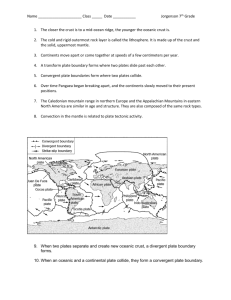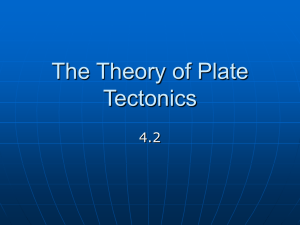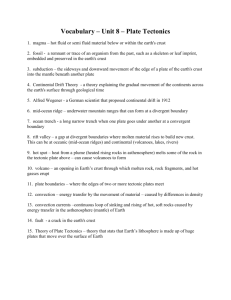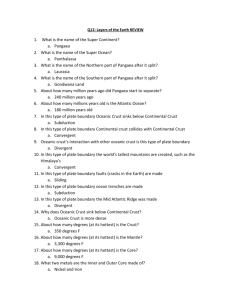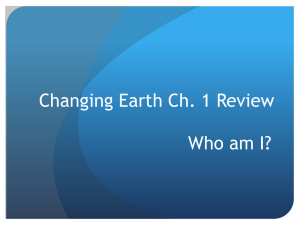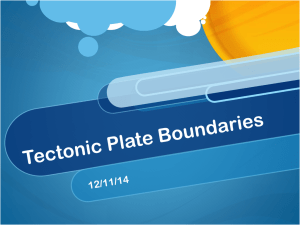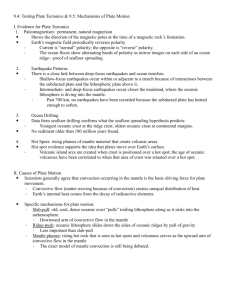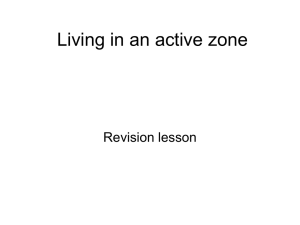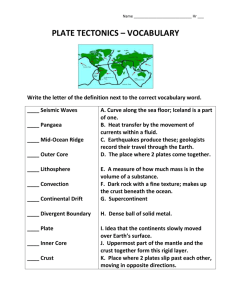Activity 10.1KEY
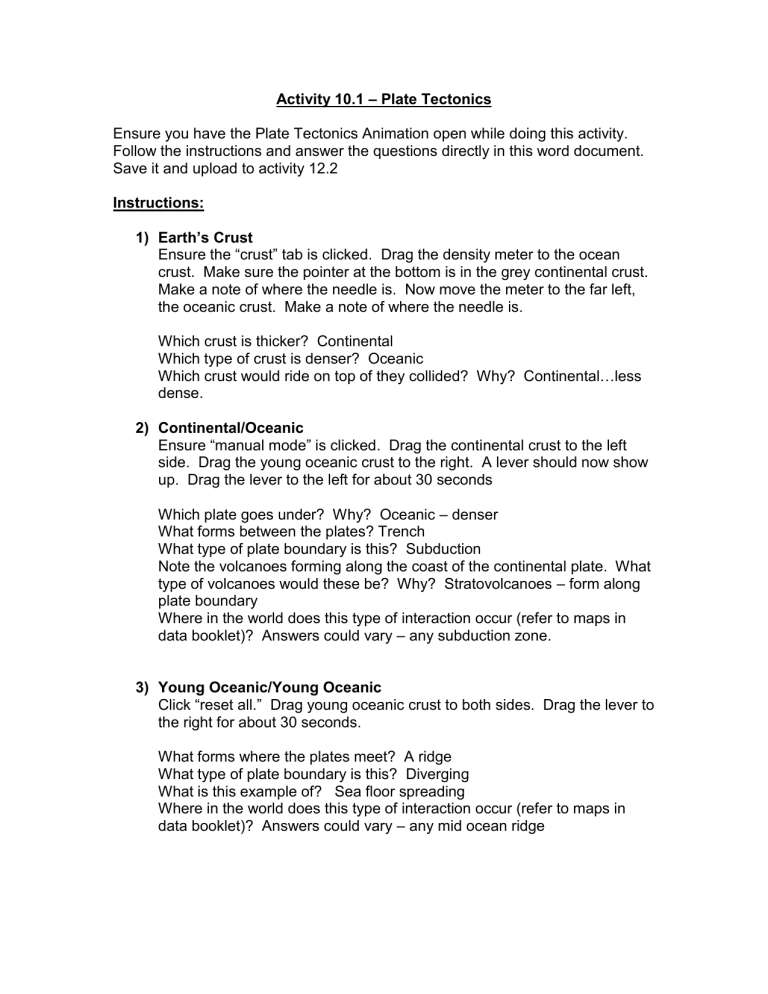
Activity 10.1
– Plate Tectonics
Ensure you have the Plate Tectonics Animation open while doing this activity.
Follow the instructions and answer the questions directly in this word document.
Save it and upload to activity 12.2
Instructions:
1) Earth’s Crust
Ensure the “crust” tab is clicked. Drag the density meter to the ocean crust. Make sure the pointer at the bottom is in the grey continental crust.
Make a note of where the needle is. Now move the meter to the far left, the oceanic crust. Make a note of where the needle is.
Which crust is thicker? Continental
Which type of crust is denser? Oceanic
Which crust would ride on top of they collided? Why? Continental…less dense.
2) Continental/Oceanic
Ensure “manual mode” is clicked. Drag the continental crust to the left side. Drag the young oceanic crust to the right. A lever should now show up. Drag the lever to the left for about 30 seconds
Which plate goes under? Why? Oceanic
– denser
What forms between the plates? Trench
What type of plate boundary is this? Subduction
Note the volcanoes forming along the coast of the continental plate. What type of volcanoes would these be? Why? Stratovolcanoes – form along plate boundary
Where in the world does this type of interaction occur (refer to maps in data booklet)? Answers could vary – any subduction zone.
3) Young Oceanic/Young Oceanic
Click “reset all.” Drag young oceanic crust to both sides. Drag the lever to the right for about 30 seconds.
What forms where the plates meet? A ridge
What type of plate boundary is this? Diverging
What is this example of? Sea floor spreading
Where in the world does this type of interaction occur (refer to maps in data booklet)? Answers could vary – any mid ocean ridge
4) Young Oceanic/Old Oceanic
Click “reset all.” Drag young ocean crust to the left and old oceanic to the right. Drag the old oceanic towards the young crust for about 30 seconds.
What forms where the plates meet? A trench
What type of plate boundary is this? Converging
Why does the old oceanic crust go under? Denser
– older, sediments packed down more
What forms at the trench? Volcanic islands
Where in the world does this type of interaction occur (refer to maps in data booklet)? Answers could vary
– Aleutian islands
